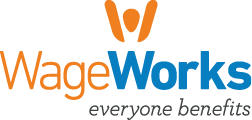
Flexible Spending Accounts (FSA) can offer you tax advantages on expenditures that you already know you will have in the coming year. We thought we would take a look at the Dependent Care FSA (DCFSA) this month.
The Dependent Care Flexible Spending Account offers reimbursement for the dependent care costs of:
- A dependent child(ren) under the age of 13 who resides with you and for whom you are entitled to a personal tax exemption as a dependent
- A spouse or other tax-dependent who resides with you and is physically or mentally incapable of self-care.
Read more about eligibility here.
How It Works
Faculty and staff members may contribute a maximum of $5,000 per year to fund a DCFSA. This amount is reduced to $2,500 per year if the employee is married and files a separate return. The combined DFSA benefit available to a married couple is $5,000 per year.
Within this limit, you choose the total amount you wish to save for the year. The funds are then deducted from your paycheck pre-tax each pay period in equal amounts, resulting in a lower taxable income for you.
Dependent Care FSAs differ from Health Care FSAs in a few ways:
1. With a Dependent Care FSA you cannot submit claims in excess of what you have in your account. There are no advances.
2. Because there are also income tax credits related to dependent care, you should consult a tax advisor to determine if using the DFSA is the more advantageous option to paying these expenses with after-tax income.
3. If you find your dependent care costs are changing, you can change the amount you are contributing as a mid-year change. The limit of $5,000 per family still applies.
4. Dependent Care FSAs have a “use or lose” condition: Any funds that are not used for services that take place within the plan year (January 1 – December 31) are forfeited by the employee.
The bottom line is careful planning is essential when establishing a DCFSA.
What Qualifies?
You might be pleasantly surprised to learn what qualifies as a dependent care expense. For example, summer camp for your dependent child counts if the camp is caring for your child during the hours when you and/or your spouse/partner are working or attending school full time. After school care, adult day care, and au pairs are some other examples of eligible expenses. Again, it’s key that these services are being used to care for an eligible dependent (child or adult) during a time when you are working or attending school.
It's important to keep receipts and other supporting documentation related to your WageWorks Dependent Care FSA expenses and reimbursement requests. The IRS requires appropriate documentation for all Dependent Care FSA reimbursements.
Submitting Claims
 Lehigh’s FSAs are administered by WageWorks. Once you have enrolled in the DCFSA, you can begin submitting claims directly to WageWorks. It is essential that you keep all receipts for eligible expenses. You will need to submit receipts along with your claim.
Lehigh’s FSAs are administered by WageWorks. Once you have enrolled in the DCFSA, you can begin submitting claims directly to WageWorks. It is essential that you keep all receipts for eligible expenses. You will need to submit receipts along with your claim.
The deadline for submission of reimbursement requests from a Lehigh DCFSA is March 31 following the end of the calendar year in which the expense was incurred. This extra three months is intended to give you time to submit claims for bills received after December 31 for services that took place during the plan year.
WageWorks maintains a web portal as well as a mobile app for your convenience. Be sure to check out their Tips for Managing Your Dependent Care FSA for more valuable information and insights.
Have more questions about Dependent Care FSAs? Call the Benefitfocus helpline at 1-844-342-4002.
